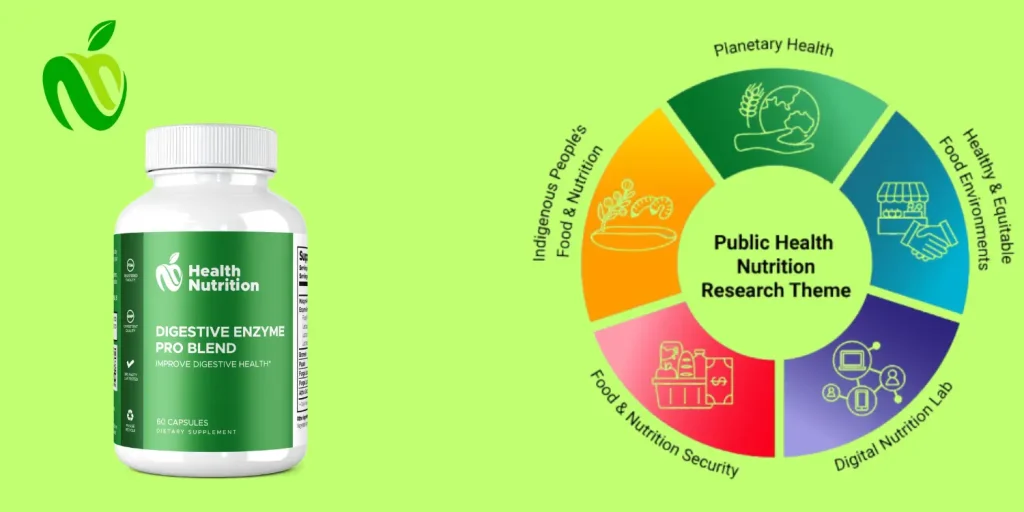What defines health nutrition?
The science of consuming foods and nutrients in the right proportions to maintain health and prevent diseases is called health nutrition. It also puts more emphasis on consumption of nutrient-dense foods containing vitamins, minerals, proteins, carbohydrates, and fats. Aside from helping prevent chronic diseases such as heart disease, diabetes, and obesity, there are other functions of nutrition, which are energy metabolism, immune function, and cell repair.
Concepts such as awareness, portion management, and portion limitation are the core values of great dietary health. It minimizes foods that are high in calories from sugar and fats, salt, and trans fats, and at the same time allows for increased intake of foods that are rich in vitamins and minerals, such as fruits and vegetables, lean meats, whole grain products, and healthy fats. Nutrition timing as well as sufficient water is also a part of a healthy diet.
To achieve the best results and maintain good health and quality of life, nutrition plans consider age, gender, level of activity, and certain medical conditions. Stress management, exercise, and good nutrition comprise the cornerstone of a complete lifestyle modification plan.

What are healthy nutrition examples?
Healthy nutrition is a diet focused on taking as many nutrient-dense foods as possible in order to improve overall health. A broad variety of whole foods that provide essential vitamins, minerals, and energy sources are examples of a proper diet.
Most vegetables and fruits contain vitamins and minerals, fiber, and antioxidants. Examples include dark, green vegetables such as kale and spinach and red, orange, and blue fresh fruits such as apples, oranges, and berries. Healthy carbohydrates include fibre and complex carbohydrates foods like brown rice, quinoa, whole grain bread, etc.
The lean protein foods are fish, poultry, tofu, and legumes (beans, lentils) are important in physique construction and support of the body mass. Good fats include those found in nuts, seeds, avocados, and olive oil, the crucial items that help maintain the hearts and brains of people.
Healthy nutrition not only contains choosing healthy food but also choosing its appropriate amount of intake.
What are the 5 main types of nutrition?
The nutrients are carbohydrates, protein, fat, vitamins, and minerals, and water can be classified as the five basic nutrient groups. Both are needed for general health and most physiological processes in one’s body and nervous system.
- The body’s prime fuel is carbohydrates, though there are other sources of nutrients that work in harmony to provide energy. They both support mental and physical exercise and can be found in foods like breads, rice, fruits, and vegetables.
- Proteins are required to reconstruct or even to repair muscles, skins, and other substantial human body tissues and organs. There are also lean meats, fish, eggs, beans, and nuts in the group of protein foods.
- Fats enable the transportation of fat-soluble vitamins and provide and supply concentrated energy. Leavsy, avocado, nuts and seeds, and olive oil are examples of foods containing healthy fats, and trans and saturated fats should not be consumed.
- Minerals and vitamins regulate several body processes, including bone and immune systems. They are available in many fruits, vegetables, dairy products, and whole grain foods.
- The human body requires water when taking a balanced diet in order to assist in processes such as regulation of body temperature, metabolic processes, and others.

Why is healthy nutrition important?
The process of having a proper diet plays a significant role in health and the ability to prevent a few diseases. It provides the body with the crucial nutrients required for growth, maintenance of body tissues, and energy. Maintenance of such crucial systems in the body as the immune system, the metabolism, or the functioning of particular organs is provided by natural diet.
Diseases like heart disease, diabetes, obesity, and some types of cancer can be avoided by including nutrient-dense meals, which should include fruits, veggies, wholesome grains, lean meats, and healthy fats. A poor diet also impacts mood and cognition and therefore has negative mental health outcomes.

Health Nutrition Conclusion?
In other words, common sense indicates that it all starts with balanced nutrition to support a healthy lifestyle. They supply the body with the essential nutrients it requires to support development/repair, energy, and combat diseases. Foods rich in fiber, vitamins, minerals, low fats, and cholesterol aid in proper heart functioning apart from maintaining the brain fit and also the immune system strong. These benefits, if supported by drinking adequate water and eating mindfully, enhance the benefits accrued from taking proper nutrition.
Proper nutrition is essential not only from the bodily health perspective In fact, eating well. Good nutrition promotes vigor and strength, builds and maintains healthy bones and muscles, and contributes to the health
